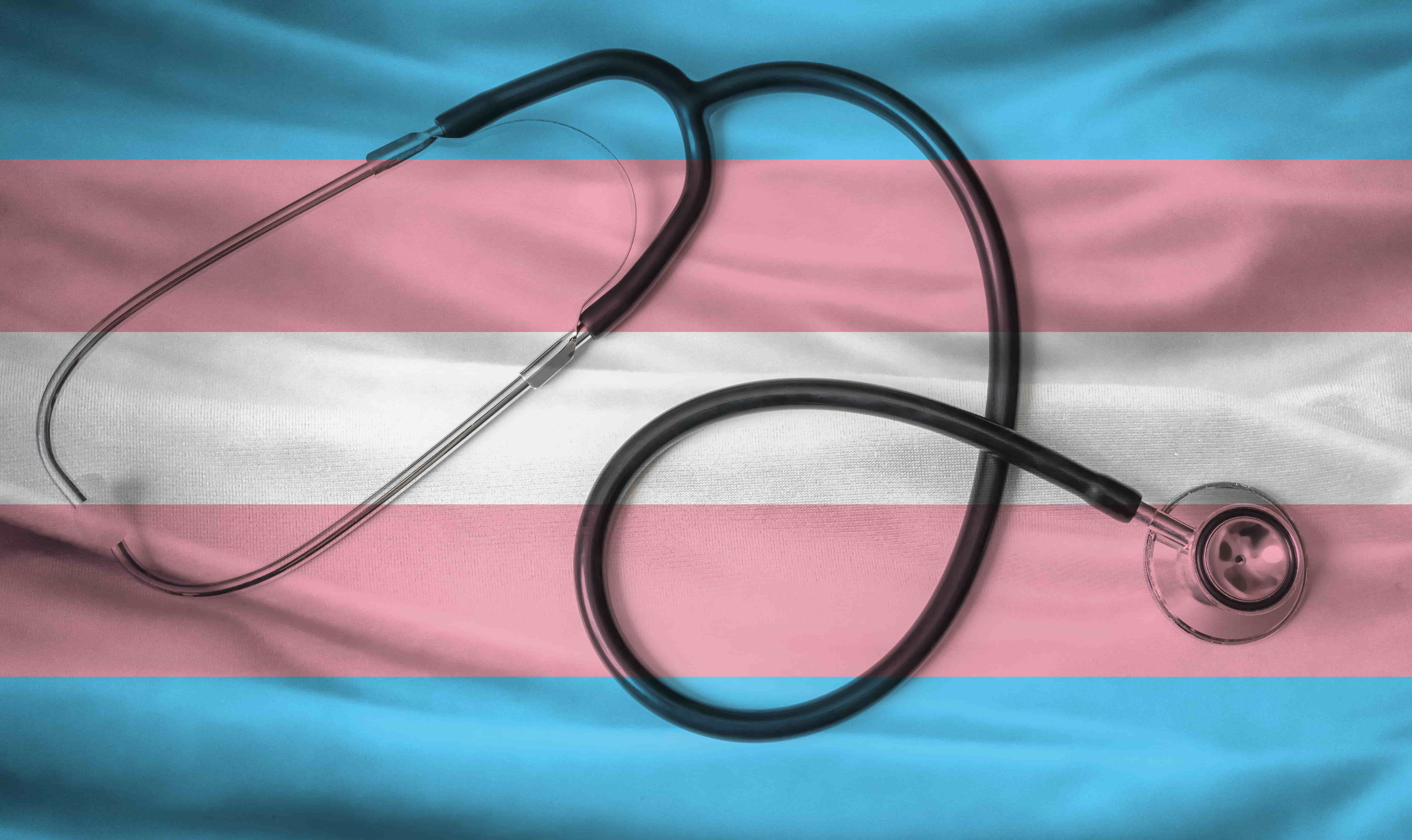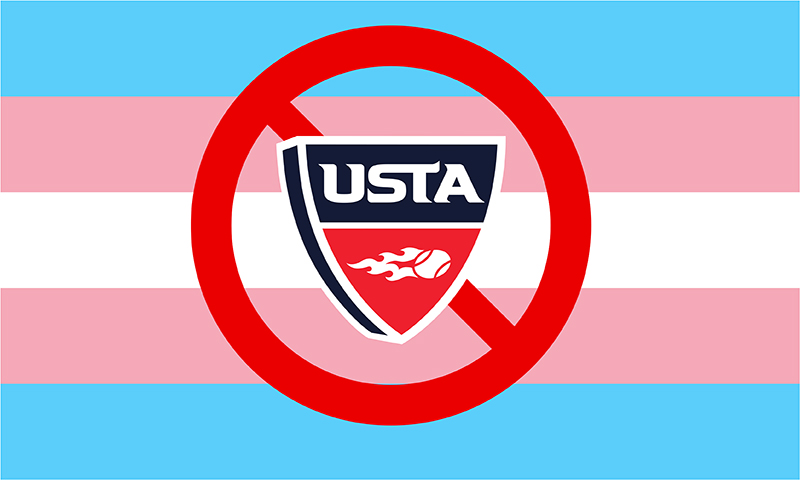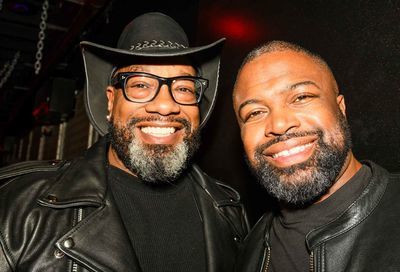West Virginia Medicaid Must Cover Cost of Transgender Surgical Care
Judge rules insurance exclusion discriminates against transgender people in violation of federal laws.
By John Riley on August 8, 2022 @JRileyMW

On Aug. 2, a federal judge ruled that West Virginia’s Medicaid program must cover gender-affirming surgical care for transgender patients.
U.S. District Court Judge Robert Chambers, of the Southern District of West Virginia, ruled that the insurance exclusion contained in the state’s Medicaid program — which prohibited coverage for gender confirmation surgery to treat gender dysphoria — discriminates against individuals on both their sex and their gender identity. He also issued an order prohibiting the state from attempting to enforce the exclusion by denying coverage to other transgender recipients.
In the case, known as Fain v. Crouch, Chambers found that such discrimination violates the Equal Protection Clause of the Fourteenth Amendment, anti-discrimination provisions contained in the Affordable Care Act, and provisions of the Medicaid Act that require Medicaid to cover medically necessary treatments and require that all Medicaid recipients receive access to the same type of coverage as other recipients.
“Defendants enacted a clear policy excluding coverage for surgical care of gender dysphoria with no exceptions. This caused an actual, concrete injury to plaintiffs by essentially constructing a discriminatory barrier between them and health insurance coverage,” Chambers wrote in his opinion. “This is not a hypothetical injury.
“Plaintiffs requesting coverage would have been futile due to the exceptionalness exclusion, and the law does not require Plaintiffs to take such futile acts,” Chambers added. “Defendants’ policy was clear — a request for coverage would have been denied under the exclusion. Thus, Plaintiffs have standing.”
The original plaintiffs in the lawsuit — Christopher Fain, a clothing store employee and Medicaid participant; and Brian McNemar, an accountant at a state hospital and his transgender spouse, student Zachary Martell — enlisted the help of Lambda Legal, the Employment Law Center, and the law firm Nicholas Kaster, PLLP, suing state officials in 2020 to challenge insurance exclusions in both West Virginia’s Medicaid program and its state employee health plans, as provided by the state’s Public Employee Insurance Agency.
In 2021, two additional plaintiffs, Shauntae Anderson, a warehouse worker and Medicaid recipient,, and Leanne James, a state employee, were successfully added to the lawsuit as plaintiffs. In 2022, a settlement with The Health Plan of West Virginia led to the removal of insurance exclusion on gender-affirming care in PEIA plans, with the remainder of claims regarding the PEIA being dismissed after James’ death in February 2022. The case continued, focusing on only the Medicaid exclusion.
The court also certified the lawsuit as a class action suit, meaning Judge Chambers’ findings apply to all transgender West Virginians who participate in the state’s Medicaid program, not just Anderson and Fain as individuals.
Fain and Anderson, as well as members of their legal team, praised Chambers’ ruling.
“We applaud Judge Chambers’ decision to remove the discriminatory barrier to accessing medically necessary, gender-confirming surgical care for all transgender West Virginia Medicaid participants,” Avatara Smith-Carrington, a staff attorney at Lambda Legal, said in a statement. “Protecting and advancing health care for transgender people is vital, sound, and just. Transgender West Virginia Medicaid participants deserve to have equal access to the same coverage for medically necessary healthcare that cisgender Medicaid participants receive as a matter of course.”
“I am excited to finally have access to the healthcare I deserve,” Anderson said in a statement. “The exclusion negatively affects my health and wellbeing as well as the health and wellbeing of other transgender Medicaid participants in our community. Gender-confirming care is healthcare, and it is lifesaving.”
“This is a victory not only for me but for other transgender Medicaid participants across West Virginia,” Fain noted. “This decision is validating, confirming that after years of fighting to prove that gender-confirming care is medically necessary, we should have access to the same services that West Virginia Medicaid already provides to cisgender participants. Transgender West Virginians should never feel as if our lives are worth less than others.”
More from Metro Weekly:
U.S. House Bans Medicaid Coverage for Trans Youth Health Care
The bill bars federal insurance coverage for gender-affirming care for minors and is unlikely to advance in the Senate.
By John Riley on December 19, 2025 @JRileyMW
Congressional lawmakers have approved a measure that would bar Medicaid -- the federal health insurance program for low-income Americans -- from covering gender-affirming care, including hormonal and surgical interventions, for minors.
The "Do No Harm in Medicaid Act," sponsored by U.S. Rep. Dan Crenshaw (R-Texas), is the third in a series of Republican-backed efforts to block people under 18 from accessing medical treatments that assist in a gender transition.
The measure passed by a 215-201 vote, with four Democrats -- Reps. Henry Cuellar (Texas), Vicente Gonzalez (Texas), Don Davis (N.C.) and Marie Gluesenkamp Perez (Wash.) -- joining Republicans in support of the ban.
USTA Quietly Bans Trans Athletes From Women’s Tennis
The new eligibility policy adopts the definition of “female” set forth in Trump’s executive order and aligns with U.S. Olympic organizations.
By John Riley on December 8, 2025 @JRileyMW
The United States Tennis Association, the national governing body for tennis in the United States, has quietly banned transgender athletes from competing in women's events.
As first reported by independent journalist Marisa Kabas in her newsletter The Handbasket, the USTA revised its "Player Eligibility Policy" page on October 25 with no prior warning or public announcement.
Under the revised policy -- which applies to all sex-specific junior and adult leagues, tournaments, and competitions, whether Olympic, professional, or recreational -- only athletes who meet the USTA's definition of a woman or girl may compete in events designated for women or girls.
Barry Manilow Reveals Lung Cancer Diagnosis
The 82-year-old says the cancer was caught early, surgery is planned, and no chemo or radiation is expected.
By John Riley on December 23, 2025 @JRileyMW
Barry Manilow announced in an Instagram post that he has lung cancer.
"As many of you know, I recently went through six weeks of bronchitis followed by a relapse of another five weeks," wrote the 82-year-old singer-songwriter. "Even though I was over the bronchitis and back on stage at the Westgate Las Vegas, my wonderful doctor ordered an MRI just to make sure that everything was OK. The MRI discovered a cancerous spot on my left lung that needs to be removed.
"It's pure luck (and a great doctor) that it was found so early," Manilow continued. "That's the good news."
Support Metro Weekly’s Journalism
These are challenging times for news organizations. And yet it’s crucial we stay active and provide vital resources and information to both our local readers and the world. So won’t you please take a moment and consider supporting Metro Weekly with a membership? For as little as $5 a month, you can help ensure Metro Weekly magazine and MetroWeekly.com remain free, viable resources as we provide the best, most diverse, culturally-resonant LGBTQ coverage in both the D.C. region and around the world. Memberships come with exclusive perks and discounts, your own personal digital delivery of each week’s magazine (and an archive), access to our Member's Lounge when it launches this fall, and exclusive members-only items like Metro Weekly Membership Mugs and Tote Bags! Check out all our membership levels here and please join us today!
The Magazine
-
Most Popular
 Chicago-Area Teen Used Sniffies to Lure and Rob Uber Driver
Chicago-Area Teen Used Sniffies to Lure and Rob Uber Driver  Jason Elliott on His Year as Mr. Mid-Atlantic Leather
Jason Elliott on His Year as Mr. Mid-Atlantic Leather  Man Sentenced to 21 Years in Killing of Daniel Landeros
Man Sentenced to 21 Years in Killing of Daniel Landeros  Man Slashed on NYC Subway for Kissing Trans Partner
Man Slashed on NYC Subway for Kissing Trans Partner  Hockey Player Says 'Heated Rivalry' Inspired Him to Come Out
Hockey Player Says 'Heated Rivalry' Inspired Him to Come Out  The History of the Hanky Code
The History of the Hanky Code  From the Archives: A 1997 Q&A With the D.C. Eagle’s Dick McHugh
From the Archives: A 1997 Q&A With the D.C. Eagle’s Dick McHugh  Most Sniffies Users Aren’t Gay, New Data Shows
Most Sniffies Users Aren’t Gay, New Data Shows  Louisiana Man Charged With Extorting LSU Student Into Sex
Louisiana Man Charged With Extorting LSU Student Into Sex  Gay Former Sales Manager Sues Pittsburgh Steelers
Gay Former Sales Manager Sues Pittsburgh Steelers
 Chicago-Area Teen Used Sniffies to Lure and Rob Uber Driver
Chicago-Area Teen Used Sniffies to Lure and Rob Uber Driver  Man Slashed on NYC Subway for Kissing Trans Partner
Man Slashed on NYC Subway for Kissing Trans Partner  Man Sentenced to 21 Years in Killing of Daniel Landeros
Man Sentenced to 21 Years in Killing of Daniel Landeros  Gay Former Sales Manager Sues Pittsburgh Steelers
Gay Former Sales Manager Sues Pittsburgh Steelers  Hockey Player Says 'Heated Rivalry' Inspired Him to Come Out
Hockey Player Says 'Heated Rivalry' Inspired Him to Come Out  From the Archives: A 1997 Q&A With the D.C. Eagle’s Dick McHugh
From the Archives: A 1997 Q&A With the D.C. Eagle’s Dick McHugh  Jason Elliott on His Year as Mr. Mid-Atlantic Leather
Jason Elliott on His Year as Mr. Mid-Atlantic Leather  The History of the Hanky Code
The History of the Hanky Code  Dallas Approves Rainbow Steps at Pro-LGBTQ Church
Dallas Approves Rainbow Steps at Pro-LGBTQ Church  Matt Rogers, Bowen Yang Apologize for Dismissing Jasmine Crockett
Matt Rogers, Bowen Yang Apologize for Dismissing Jasmine Crockett
Scene
Metro Weekly
Washington's LGBTQ Magazine
P.O. Box 11559
Washington, DC 20008 (202) 527-9624
About Us pageFollow Us:
· Facebook
· Twitter
· Flipboard
· YouTube
· Instagram
· RSS News | RSS SceneArchives
Copyright ©2025 Jansi LLC.














You must be logged in to post a comment.